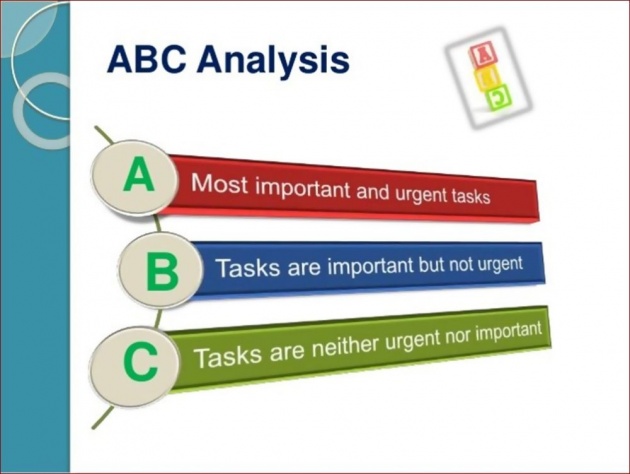
Effective Time Management Systems and Tools - Photo credit: twitter.com, Edition by Amber255 via Bitlanders.com
One of the most expensive resources that we all have is time. Considering that a person spends a third of his time sleeping, there is not so much precious time left to waste it. Time is money; time is life.
The rhythm in which most of us live can hardly be called calm and measured. Lack of time, hard work, and tight time trouble are trials that not everyone can cope with. Constantly being in a state of I don’t know how to cope with all works can hardly be called proper when it comes to personal effectiveness. Emotional stress blocks performance leads to fatigue and apathy. Therefore, let's talk about time management that helps to avoid stress or, even worse, to get chronic fatigue syndrome.
There is no excess and lack of time - we need to appreciate it and be able to use its flow, like a stream of rivers - thanks to which a person moves on ships and uses the power of water in the mills. This should also be done correctly, so as not to go against the current. Even the smallest streams sharpen rocks, and seconds can take shape in years of useful work and success.
If I ask myself a few years ago why I do not plan my works, I would probably shake my head and laugh: To plan? Oh, no! I tried once, and I did not like it. At that time, I had tried just one way of scheduling (and completely disregarded the recommended rules) and had already disappointed forever. Then I didn't know that there is more than one way to plan time. And some of them are so different as day and night.
Planning is bringing the future into the present so that you can do something about it now. ― Alan Lakein, author
Credit: workzone.com
My Challenge With Time Planning
Just a couple of years ago in December, I experienced the most severe stress wave caused by unfinished works in my life. I had pledged to write daily posts for one blog that we created with my friend. I wanted to expand this blog and advertise it. I had also to finish the semester in less than two weeks. And of course, I had a job in current real estate office, but at that time I worked as an agent, so my work hours extended to late night as people want to get familiar with premises not only in the day time but also after their job. I felt stressed every day and went to bed just in the middle of the night, sometimes slept only a couple of hours.
After several weeks of stress and sleepless nights, I decided to change - I decided to try at least 5 different time planning methods in January and find one that would suit my lifestyle.
Perhaps it is not surprising that I could find the close one that fitted to me after checked the variety of time management systems. So I can safely say - if you think that time planning is not for you - it is may wrong.
Maybe you just haven't found the time planning system yet which would suit your way of thinking and living.

Effective Time Management Systems and Tools - Photo credit: trainingstation.walkme.com
Different Time Planning Systems And Which One Would Suit You?
There are many time management systems, but I will add only those which I tested myself. I simply tried one after another for some time and quickly understood if it fits me or not. And no, I never used any of those systems all 24 hours a day. But when I get a pile of works and start stressing, I use a time management system.
ABC Time Management System + Pareto Principle - For Those Who Wants A Clear Goal
This method will appeal to those who do not want complex systems but only want a simple method to choose what to do and in what order.
Using the ABC time management system, divide all possible works into three parts:
(A) important and urgent;
(B) important and non-urgent;
(C) neither important nor urgent.

ABC Time Management System - Photo credit: airfreshener.club
Then the works divided by the Pareto Principle place in a more tangible schedule. As this principle states, 80% of the work you can do in 20% of the time, and the remaining 20% works in 80% of the time.
In other words, to get rid of most of the important and urgent works, first, carry out 80% of short works. And to cut the number of works that look worthless, start with the remaining 20%.
The Pareto Principle is valid in all areas of life. Therefore, it is worthwhile to introduce certain behavioral changes: you have not enough time to help everybody so say 'no' more often. Not every e-mail you receive requires a detailed answer; you can simply cut it or write an answer in 1-3 sentences.
Think about whether what you are doing brings benefit to you? Maybe you could do what would bring much more results? Measure how long one or another action takes, and how much it benefits. It is important to find out what those "good" 20% are and give them as much time as possible. Meanwhile, with the remaining 80% spend as little time as possible.

Pareto Principle - Photo credit: facebook.com
The Kanban system - For Those Who Wants To See The Whole Process
If you mark often your thoughts with arrows or colors - Kanban system is exactly for you. It is the most visual system of all I add here.
Kanban system is based on process (work path) monitoring. At one end, the works that have not yet begun are laid out, in the second one - finished works. In the middle everything between these two points. This helps to see how many (and what) works you are doing at the moment and how many already finished.
I used this system for a long time even after a challenge. In fact, it is probably the best system if you have a lot of parallel works that somebody has to take over. For example, I write drafts of articles for our company's website, and my colleague edit and design. In the end, it comes back to me. If your job is teamwork - this system will help.
It's easy to see the process right away. I guess if I had big projects it would be very convenient. With small projections, it is not as convenient as they are practically composed of one job. The system was originally designed for white writing board + sticky notes, but you can come with your own idea.
Create your first Personal Kanban - Video credit: youtube.com
There are virtual Kanban system boards if you have not tangible boar, so try them: Trelo, Kanbanize, Kanban Tool.
Weekplan - For Those Who Want To Grow Themselves
Do you not only want to follow the work of the week at the same time but also to educate yourself and develop your skills? Weekplan will help. It is a system created by Stephen Covey, author of the book The 7 Habits of Highly Effective People. I believe you have heard about this book - it is sometimes referred to as one of the best self-education books.
For each of your self-education goals (broken down by your aspirations at work, family, health, or whatever you want), is set a separate place in the weekly plan. These works are not recorded on a long, never-ending list, so they will be not lost during the week.

Weekplan - Photo credit: blog.kaavefali.com
Weekplan - a gadget in your browser and on your smartphone.
Computer Template - for those who prefer to use Excel, Google sheets or similar.
7 Habits Weekly Planner - if the gadgets or Excel do not attract you, there is always a paper version.
There are, of course, more options available on the internet, but they will be not very different (probably) from each other. You can use any of these methods.
From my experience, I can add that this time planing style is a bit immobile. It is difficult to write or change what you need, or you should carry the schedule everywhere, or open excel/google docs.

Weekplan - Photo credit: tumblr.com
Getting Things Done - For Those Who Are Having Lots Of Thoughts
Although it is one of the more complex systems (the most complex ones mentioned here), it does its job from just perfectly. It is so amazing that in the system's home country US, it has become almost a religion among directors and other executives.
The system solves one of the major productivity problems: the human brain, when there are questions circling in them, does not work as well as if the brain is free of any thoughts. GTD (Getting Things Done) solves this problem in a simple process:
Collection - all the work and information discard from active thoughts to a temporary storage place. For instance, write down and place your thoughts in a special place. It is about absolutely everything - ideas, deeds, potential projects, everything that has just come to your head. The main point - if you are working and get an idea, you write it down and leave it. Unleash your thoughts until you look at what you wrote down again.

Getting Things Done time management system - Photo credit: medium.com
Basically, it's like freeing up RAM on your computer - throwing up unnecessary thoughts while taking notes. Give more attention after you are able to concentrate. You can collect them anywhere - in the email box, in the notebook, in your work calendar, in your phone app (Wunderlist) or elsewhere.
Sorting out - all the work that you can do in 2 minutes, do right away. The works that do not have a defined purpose or decision - postpone to the store of ideas and all the rest works plan for a week.
Sorting out again - repeat it once a day and once a week.
This method is using separate sheets. Sheets is non-sticky (to me it is not comfortable), but that doesn't change much. In fact, you can use GTD with practically any means - excel, desktop, and mobile apps.
Toodledo is one of the possible GTD applications for your convenience.
Getting Things Done - Video credit: youtube.com
Final Version - For Those Who Wants To Have Freedom Of Choice
Imagine - what if you could choose what to do next, listening to your own desires of the moment and still being able to finish your work on time? The Final version time management system helps achieve this.
The principle is simple: write all your works in one long list, and then look at all the points in a row. When you find one you would like to cut (such as reply to emails), mark it with a dot. Then go and look for the other job you would like to do FIRST before the first job you marked with the dot, such as to call a mom. Repeat the review until the job you want to do is no longer available.
After you selected the jobs (usually about 3-4), complete them fully. Delete the completed works from the list and repeat the process.
This system has three advantages:
All the work on your list becomes equally important, so you don't stop somewhere at the top of the list for the most difficult work.
Selecting the sequence of works according to your wishes, you no longer have the desire to postpone the work.
The third advantage - urgent tasks are obviously done more quickly.

Final Version Time Management System - Photo credit: twitter.com
Without The System - For Those Who Has No Wish To Plan The Time
If you do not have the desire (or need) to schedule time - it's better not to try at all. Infinite people lived and still live without planning their days. They live happily even without being very effective.
Because what the effectiveness is worth if it kills your creativity or you do not feel happy?
Maybe you are a man with little work. Or you have just one job. Perhaps you are creating handmade dolls, wanting to live quietly, enjoying moments and changing garden by seasons. You do not need a productivity system if you don't have what to do with that system. And there's nothing wrong with that.

Time management - Photo credit: twitter.com
On The Final Note
After the appearance of a sense of time, a sense of its value, you will certainly want to follow your goals, values, plans and be more flexible with it. To make this, you can try different techniques, you can learn from mistakes - in any case, you will have more time to do it effectively. This will bring satisfaction and free up time for new things. The more you do, the more you have time. But to succeed, first of all, you must:
Know your goals! Time management systems will only help you if you have goals. So clear them up - what do you want to achieve, what do you want to do?
Try to plan as much as possible! The more you plan - the more time you have. Try one of the many time management systems and see if your efficiency has changed.
Discipline yourself! The hardest part is to follow the plan. Discipline is needed when motivation and enthusiasm come to an end. And they are always fading. Just don't forget your plan and don't delay your work!

Effective Time Management Systems and Tools - Photo credit: twitter.com
And don't forget to relax. One has to learn to notice when it is time to pause. To burn in line with a tense plan is certainly possible. Take time for yourself. We need to create such a regime that we would not feel guilty of our rest. Note that rest is just the same as any other task. However, sitting in front of the TV, because you are lazy to think or to do something more interesting, is no rest. The rest relaxes us, allows us to relax mentally, physically, and see problems from another angle.
So, in the end, I just wish good luck and desire to catch your own wave in managing yourself and your time.
And, if you still did not get what I wanted to say here, then remember the relevant Chinese saying:
A journey of a thousand miles begins with a single step, - Lao Tzu
Credit: en.wikipedia.org
SUCCESS!
**********************************************************************************************
Thank you for stopping by and reading my blog
2019, All Rights Reserved.
You are very welcome to join Bitlanders and share your valuable knowledge and opinion.
***********************************************************************************************



